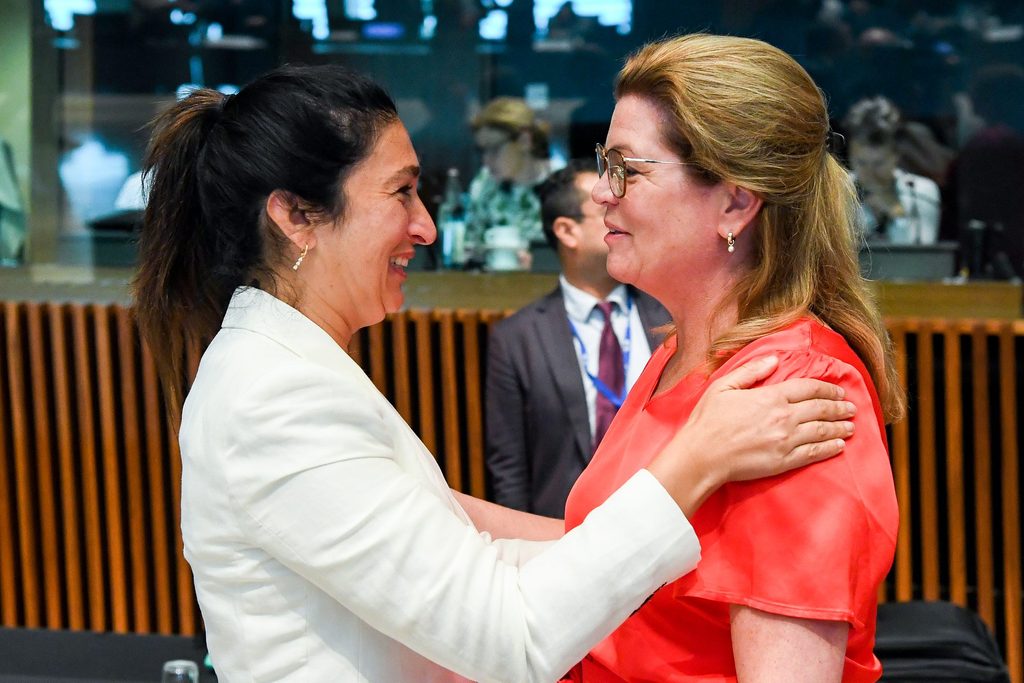The Council of the EU on Tuesday adopted an agreement on the hotly-debated nature restoration law. While there was no formal vote in the Council meeting of environmental ministers, seven countries – including Belgium – did not back the deal.
Sweden, the current holder of the Presidency of the EU Council, notably opposed its own proposal.
A tight majority was enough for the modified agreement to be adopted. The EU Council deal on this controversial legislation comes days after it barely survived a rejection vote in the environment committee of the European Parliament.
The agreement, which will serve as a basis for negotiations with the European Parliament, has been watered down on several points, including forest and marine restoration.
"We applaud the EU Ministers who have agreed today on the negotiating mandate for the Nature Restoration Law, despite the barrage of misinformation spread by conservative politicians, agriculture and fisheries lobbies as well as last-minute attempts of the Swedish Presidency to derail the negotiations," said Sergiy Moroz, Policy Manager for Water and Biodiversity at the European Environmental Bureau, in a statement.
🦋 reverse species decline 🌳 recover habitats 🌱 restore farmland
EU countries have agreed today in the Council on new rules to #RestoreNature. The world’s first #NatureRestoration law will set binding targets to recover ecosystems and species. More 👉 https://t.co/quK1UOG47b pic.twitter.com/HoylrMt9CM — EU Council (@EUCouncil) June 20, 2023
"We urge the Spanish Presidency to avoid further weakening and instead focus on strengthening the Regulation," Moroz added. The EU Council and European Parliament must both approve the deal for the legislation to pass.
The legislation on nature restoration, a key part of the EU Commission's strategy on biodiversity, has been attacked by European conservatives as a harmful measure for farmers. But last week, over 3,300 scientists came out with a letter refuting these claims.
The European People's Party (EPP) has been the most vocal opposition to the legislation, with the party's leader even being accused of blackmailing members into opposing the legislation. Four out of the seven EPP-affiliated Environment Ministers did support the legislation at the Council meeting.
Member States just adopted their position on the 🇪🇺law on nature restoration. This is a victory for the Green Deal and a stinging defeat for Mr Weber: 4 EPP ministers out of 7 and 6 governments including the EPP out of 9 supported this text! #RestoreNature
— Pascal Canfin (@pcanfin) June 20, 2023
The bill has been on a tightrope since the agriculture and fisheries committees rejected it earlier this year. The vote in the environmental committee was postponed for 27 June after a three-hour voting session went over time.
Watered-down compromise
Through the proposal, the Council agrees to bring "at least 30% of habitats in terrestrial, coastal, freshwater and marine ecosystems that are not in good condition, into good condition by 2030."
However, in its attempt to balance ambitious goals with a flexible implementation for Member States, the Council proposal undercut several points of the legislation.
The proposal establishes the "planning, construction and operations" of renewable energy plants as an overriding public interest over nature restoration. According to environmental organisation ClientEarth, this exemption was introduced despite the wind and solar sectors supporting the previous regulations.
The restoration of marine ecosystems has also been downgraded. No 203o targets apply for specific marine areas, that have soft sediment habitats. These types of habitats are found, for example, in coastal regions.
"The Council’s position weakens the initial proposal to such a degree that it disintegrates some of the key obligations and subjugates restoration to other land and sea uses. This disregards the indispensable role of biodiversity in tackling the multiple crises, including the climate one, that the European Union is currently facing," said Ioannis Agapakis, Nature Conservation Lawyer at ClientEarth.
"The one saving grace is that it shows Member States’ commitment to securing a comprehensive legal framework for restoration, in lieu of a voluntary and piecemeal approach, which has so far been unsuccessful."

